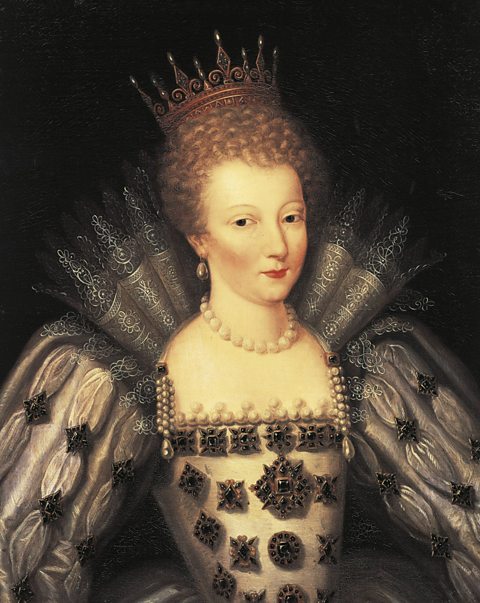The Catholic threat
Many CatholicThe Church in Western Europe before the Reformation. The Pope was head of the Church. A member of the Roman Catholic Church. in England were not happy with Elizabethās Settlement. They had enjoyed religious freedom under Queen Mary, Elizabethās sister, and they were now being asked to change or deny their beliefs. Many couldnāt make this compromise and left to live in exileWhen someone is away from their home country and is refused permission to return. abroad. Others grudgingly accepted the new regime.
To strengthen her position, Elizabeth passed laws to minimise the Catholic threat:
| Act | What it was |
| 1559 - Act of Uniformity | Those who refused to attend Church of England services (recusants) were forced to pay a fine of a shilling a week for not attending church on Sundays or holy days. |
| 1581 - Act to retain the Queenās subjects in their due obedience | Catholics who were still refusing to attend services in the Protestant Church were forced to pay an even bigger fine of Ā£20 per month, the equivalent of thousands of pounds in todayās money. In addition, anyone found to have persuaded someone to convert to Catholicism was guilty of treason and could be put to death. |
| Act | 1559 - Act of Uniformity |
|---|---|
| What it was | Those who refused to attend Church of England services (recusants) were forced to pay a fine of a shilling a week for not attending church on Sundays or holy days. |
| Act | 1581 - Act to retain the Queenās subjects in their due obedience |
|---|---|
| What it was | Catholics who were still refusing to attend services in the Protestant Church were forced to pay an even bigger fine of Ā£20 per month, the equivalent of thousands of pounds in todayās money. In addition, anyone found to have persuaded someone to convert to Catholicism was guilty of treason and could be put to death. |
Fear of Catholic plots

Despite these measures, a fear of Catholic plots was an on-going and serious threat. The rulers of the most powerful countries in Europe - Spain and France - were Catholic, and plots often had foreign backing. In 1570 the Pope issued a Papal BullA formal proclamation issued by the Pope. In 1570 Pope Pius V issued a bull excommunicating Queen Elizabeth from the Catholic Church. against Elizabeth and actively encouraged plots against her.
The main figurehead for such plotters was Mary, Queen of Scots. She had a claim to the English throne. Mary was the great niece of Henry VIII, and was seen as a potential replacement for Elizabeth.